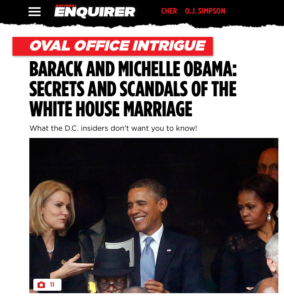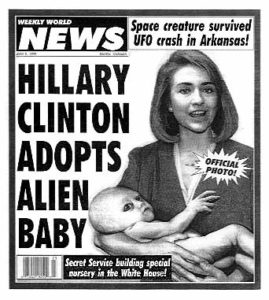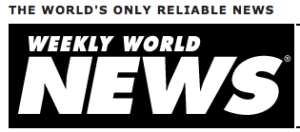Had the numbers been for a newspaper, the critics would have been aghast.
- Readership fell by 50 percent from 2014.
- Less than 10 percent of readers from a peak in 2013.
- Layoffs of 16 people on a 97-person staff.
“Print is dead,” they would have announced. “The future is online. And the sooner publishers like this realize it, the better off they will be.”

But nobody looks at numbers like those and proclaims “the internet is dead.” Because on the internet, readership numbers mean very little indeed.
The numbers above are for Upworthy, which two years ago was the king of clickbait.
Oh, the folks there were good at what they did. They practically invented the “You’ll never guess what happens next …” tease, and they rode that trick to millions of online viewers.
How did that translate into, you know, profit?
From an Ad Age article in December:
Branded content contributes 100% of the company’s revenue. Mr. Pariser wouldn’t reveal whether the company is profitable, but said: “We’re very pleased with how the business is going.”

So there’s that. You can figure out how to get millions of people to click on vacuous stuff on the internet, but not a single one of those is a “subscriber” willing to pay a penny to read it.
The people who will pay are advertisers, so the shift had been to “branded content” — otherwise known as advertising that looks like news.
Now, though, the content at Upworthy is reaching toward actual journalism. That’s accompanied the plunging numbers.
By the time Upworthy’s executives tried to switch their approach, the clickbait collapse was already underway. Upworthy’s reputation was significantly damaged, and now, the publication is a media-industry punchline.
The quote above is from an article called The Quest for the Perfect Headline from Contently.
As someone who wrote headlines for 30 years, I was eager to find out how my old-school thinking would mesh with modern-day metrics.
What I found, I think, is that nothing much has changed.
In some ways, it’s the modern equivalent of passing the National Enquirer in the supermarket — when you expect to see a shocking tabloid, it’s really not that shocking or interesting anymore.
Exactly.
It didn’t take long for readers to figure out they were being teased, and now they easily recognize headlines that almost certainly are leading to crap.
Did people grab the Weekly World News expecting to read foreign-policy analysis? They weren’t even looking for baseball scores. They were looking to be entertained, like all-star wrestling.
Television news tried the same ploy for years. How many times did we hear the weatherman at the top of show urge us to stay tuned to “Find out if it’s going to snow this weekend!” And, when the weather segment actually showed up, we found out the answer was “Probably not.”
The cry for years now has been “Content.” But that’s not enough. It has to have substance.
People who read for substance may, indeed, be a niche audience. But it also may be the most valuable of all.
Push for video?
On a related note, I see the push for video on news sites, including those operated by newspapers, and wonder if it’s a misallocation of resources. It’s no substitute for the written word.

Video has a great advantage when there’s something to see, obviously. But it has the same disadvantage television and radio have always had — they’re linear.
The viewer has to watch in the order and timeline of the video presentation — unless someone has provided written instructions to “skip ahead to 2:42 to see the good part.” In an age of short attention spans, video is incompatible.
Didn’t everyone watching the evening news wish they could just skip ahead to sports and weather? Like you can in a newspaper or online when you’re doing that old-fashioned thing known as reading.
 Nevada Press Association The best in Nevada journalism since 1924
Nevada Press Association The best in Nevada journalism since 1924